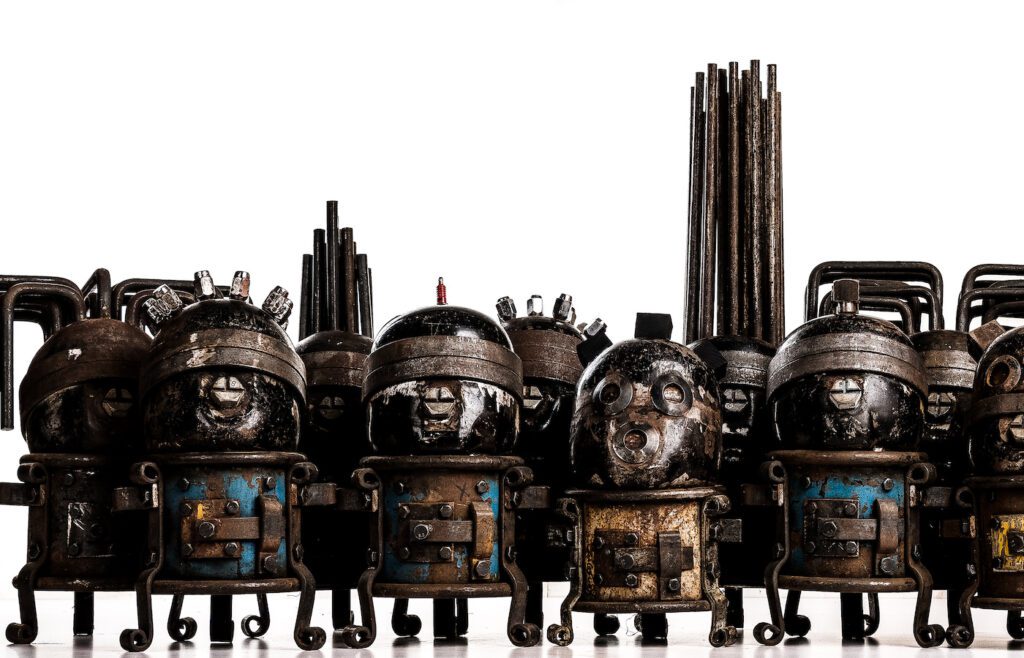Nairobi Contemporary Art Institute (NCAI), Nairobi , Kenya
04 Apr 2024 - 13 Jul 2024

Xenson, Olidde Mupipa, 2024. Courtesy of Nairobi Contemporary Art Institute (NCAI)
Opening on 4th April 2024, Olidde Mupipa will be Xenson’s first-ever solo exhibition in Nairobi and his first institutional exhibition in East Africa. With an emphasis on sculpture and installation, this exhibition will bring together six newly produced works which broaden Xenson’s exploration of objects and materials, and the stories they tell about the specific cultural contexts from which they are drawn.
Olidde mupipa (Luganda) is an idiomatic expression that translates to you have eaten from the barrel (the dustbin). The phrase implies that one has arrived too late for something that they have to make do with leftovers. More specifically, the expression refers to the steel drums, which are used for storing and transporting various liquid substances. Often these barrels are resold and repurposed for different uses, including storage for alternative substances/materials (such as rubbish), and they are also broken down to produce other functional objects such as troughs and karayi. In his practice, Xenson has adopted these steel barrels, and their offshoots, as a support for painting and as building blocks for the sculptures and installations that make up this exhibition.
Xenson has long been fascinated by language and its capacity to preserve and communicate cultural experiences. This fascination extends to his engagement with different objects, mining them for their illustrative, associative, and idiomatic potential. It has informed the development of the sculptures and installations featured in Olidde Mupipa, constructed using commonplace objects
such as sigiri (charcoal-burning stoves) and pipa (steel barrels). By reconfiguring these objects, he transforms their everyday utility to foreground their physical and formal characteristics. However, the knowledge of their use in everyday life remains central to the work, as this knowledge provides an entry point for considering their pasts within local, regional, and global cycles of production, distribution, and the consumption of goods and labour.